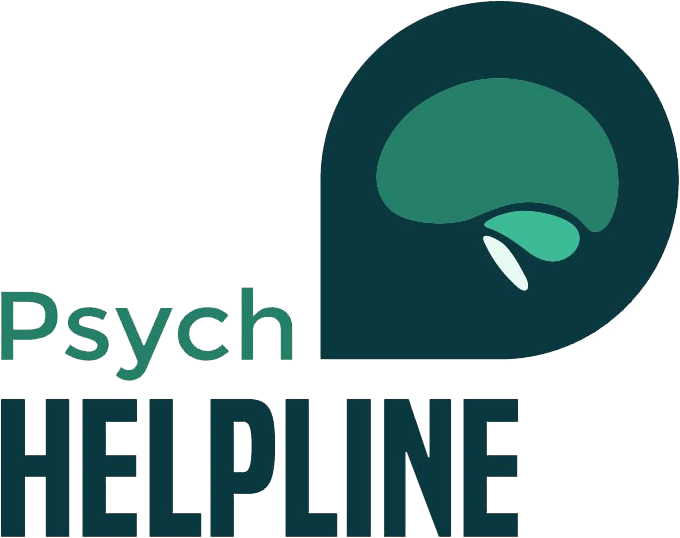Table of Contents

Narcissistic abuse recovery becomes even more essential when we take a look at the statistics pointing out to the people struggling with trauma. Narcissistic abuse is a form of abuse inflicted upon a person by a narcissistic individual. Leave no doubt, narcissistic abuse is as common as any other kind of emotional or physical abuse. Additionally, it’s usually inflicted on people by some of the ones they regard as their near and dear. These narcissistic perpetrators can be; parents, other relatives, platonic friends, romantic partners, etc.
Narcissistic abuse recovery is the gradual process of healing from the trauma and anguish that resulted from an abusive relationship with a narcissist. That relationship can be familial, platonic, or romantic. So if you’re doubting the presence of narcissistic abuse in your life or know someone who might be dealing with it. Here are some essential things to keep in mind about narcissistic abuse recovery and how one can spot an abuser in their circle. We’ll also go to great lengths to address why therapy matters the most when dealing with a similar situation.
I. Therapy & Narcissistic Abuse
Anyone who’s tackling emotional turmoil and psychological trauma needs assistance from a mental health professional. Attending one on one therapy or counseling sessions is the second step towards recovery after acceptance. Most mental health professionals heavily rely on talk therapy in this case. CBT, RPRS, and STAIR are some equally important and widely conducted therapeutic measures.
These trauma-informed models give you the emotional release you desire, pave the way for acceptance, counteract trauma, and help your therapist understand the matter at hand. Consult an online directory for your locality or ask a trusted physician to recommend a credible therapist. Find a therapist who specializes in trauma recovery as he/she can;
- Help you overcome the feeling of constant dread
- Provide treatment for any underlying issues created as a result of narcissistic abuse such as; PTSD, anxiety disorders, clinical depression, etc.
- Provide you emotional validation
- Identify the underlying patterns that make you a common target for narcissistic abusers
- Stop any ongoing self-destructive habits
- Help in fighting the urge for suicide
- Aid you in healing from any guilt and shame
- Help you in creating boundaries if you can’t leave a narcissistic abuser
You can also join an online support group or one in your locality. Joining support groups places you in an environment where others can actually identify with what you went through and vice versa. It’s not only extremely therapeutic but also pretty empowering. Therapists often work with other health professionals. Thus they can refer some health professionals for the physical anomalies you might be struggling with as a result of trauma; chronic limb pain, muscle tension, etc.
II. Narcissistic Abuse Recovery: 5 Important Coping Strategies Therapy Can Help You Establish
1. Boosting Your Self Esteem
After being stuck in a cycle of abuse where a loved one constantly criticizes you; you’re bound to have doubts about yourself. The person being abused often tends to have low self-esteem issues. They’ll start finding issues in the way they look, dress, and behave. Having low self-esteem also makes you a common target for more emotional abuse. Thus attending therapy to work on your self-esteem issues can be a huge step towards normalcy.
With your own dedication and some professional help, you can once again start noticing the good qualities in you. Looking at yourself with your own set of eyes, instead of your abusers, helps you acknowledge your self-worth.
2. A Step Back Into Reality
While suffering from the after-effects of an abusive relationship, what you’ll really desire is someone who believes in you. You need acceptance to heal from any wounds. A narcissistic abuser might’ve undermined your struggles for so long that you almost don’t believe even yourself. Talking to a counselor or a therapist can help you realize that your feelings are valid. You can take a look at the past and admit that what has happened, actually happened and you’re not being irrational. Therapy becomes the antidote to the gaslighting and manipulation, a narcissistic abuser might’ve carried out on you.
3. Cutting Off Things For Good
Staying in contact with your abuser is the worse possible thing a victim of abuse can do. Currently, we’re referring to narcissistic abuse but the situations are pretty similar for any other kind of abuse. Cutting ties with an abuser is a brutal recovery phase, especially if your abuser is a narcissistic parental figure, sibling, or romantic partner.
If you’ve already cut ties with a narcissistic abuser that’s an amazing initiative. Yet, you’ve got to make sure that you’re not stepping back into the old habits and rekindling your relationship with them. Avoid checking up on them no matter how close they once were to you. This includes; not picking up their calls, not replying to their texts, or any other means of communication.
Talking to your therapist will give you a brand new perspective on what happened and how you can put an end to it.
You can go as far as avoiding asking others about the current circumstances of your abuser. The purpose of doing all this is to ensure that you’re stepping into a new life without the negativities of your past experiences. If you have any belongings given to you by an abuser; take a box and place all those items to hide them away far from your sight. Recovery demands that you don’t look back to the things that have forced you to be where you currently are.
4. Bring The Old You Back To Life
As discussed down below, narcissistic abuse can coerce you into giving away your identity. A narcissistic abuser will try to reshape your identity by constantly pulling you down with critical behavior. On your road to recovery through counseling, you can once again reclaim what’s lost. Try to re-establish the old habits and opinions that you once used to have. They were a part of your identity and to return to a much more normal you, you need those minor parts of your personality. If your abuser tends to control the way you dressed; reclaim that power once again by dressing the way you want. If you’ve been forced to cut ties with your friends; plan a night out with them and mend all ties. Recovery is a gradual process so slowly but steadily you’ll find the old “you” once again.
5. Reenactment Of Some Old & New Boundaries
At the hands of a relationship powered by narcissistic abuse, you might’ve been forced to reclaim your choices. An abusive partner or loved one can abolish the boundaries you once created for your own wellbeing. Two of these widely seen common patterns are;
- Stopping you from interacting with your near and dear ones
- Becoming a wall between you and the activities that bring you solace
- Being extremely controlling over your personal and financial decisions
While you’re in the phase of recovery, it’s best to re-establish those boundaries once again to avoid stepping into an abusive cycle in the future. You’ll soon start dating or making friends once again. So, if you’re going to give yourself a fresh start, healing demands that you’re taking the measures you weren’t able to take before. Reclaiming ownership over your things and opinions encourages you and provides you the empowerment you need to step forward.

III. Recovery & Avoidance: 6 Red Flags Of A Narcissistic Abuser
1. You’re Always The “Bad Guy”
Once the victim starts suspecting the presence of abuse in a relationship, the abuser flips the table entirely. He/she may try to turn the narrative in their favor by making you seem like the perpetrator of atrocities. All of a sudden the abuser becomes the victim and the victim turns into the “abuser”. That’s the thing with narcissistic abusers they’ll try their best to seem like the odds are against them even when they are the sole person who’s responsible for their hideousness.
So, perhaps the most visible sign of narcissistic abuse would be how the person you’re suspecting reacts to things. If you’re complaining to your parent, s/o, or any close friend regarding something wrong they’ve done to you, their response can give you a heads up. If it’s not a situation where abuse is being orchestrated, the other person will try to defend themselves or make amends without always blaming you. On the contrary, a narcissistic abuser twists the situation to make you doubt your own claims no matter how truthful they are. It’s always an ongoing pattern during every argument you’ve ever had with that particular person.

2. Charm & Manipulation
The most dangerous aspect of dealing with narcissistic abusers is that they are very charming. As a result of this charm, they can always get away with the lies they tell and the manipulative tactics they utilize. Their charm also enables them to twist narratives, change situations, and shift the blame on anyone else.
Thus if you are going against the abuse carried out against you a narcissistic abuser will try his/her best to clear their image in front of anyone else. They can go as far as using your reaction to the abuse to make you seem irrational and exploitative in front of others. Thus they can change public opinion by turning themselves into a victim. This is the same charm they used to woo you in the first place. So, if by any chance you can detect this red flag and the exploitative nature of their charms; run towards the opposite direction.
3. Excessive Admiration
Admiration and praise are necessary for every person. Needless to say, it is amazing if someone praises their loved ones for the small things they do. We all have the urge to be acknowledged and praised for the small things in life. But this urge is a little over the top among narcissists. People who have suffered narcissistic abuse at the hands of parental figures will be able to understand the situation better. Such parental figures go to extreme lengths just so their kids would acknowledge the things they do for them. It includes some of the most minor things in life such as making meals for their kids or paying their dues.
The case is no different when you’re dealing with a significant other who could be perpetuating narcissistic abuse on you. They’ll try to emotionally badger you by using verbal cues and emotional stunts if you aren’t able to needlessly praise them most of the time. Using a sarcastic undertone and making sensitive jabs are also some common patterns. They might try to pretend like they’re joking, but that joke will go to an extreme length just to make you feel like you’re insensitive and underappreciative. Everything they do for you becomes a transaction for them in your relationship. Thus it’s one of the key signs of a narcissistic abuser.
4. The Presence Of Doubt
There’s not one thing that can be set about narcissistic abuse; It is gradual subtle and always undetected. As stated earlier narcissistic abusers can sugarcoat everything they say or do to you. It’s a huge red flag if you’re still feeling like something’s wrong under the disguise of their heavenly nature. The feeling of discomfort stays with you yet you cannot seem to find the right awards to explain what’s happening. The people around you might notice a thing or two wrong between you and the alleged abuser but the nature of this subtle attitude often leads them to undermine the situation as something casual.
People who are being mentally, emotionally, or physically abused often tend to undermine their own sufferings too. Sometimes it has to do a lot with the fact that the person abusing them is someone they deeply adore. Thus the victim can’t really seem to accept the fact that a loved one would go to that extent and turn out that evil. Even if there’s a smidgen of doubt in your mind regarding the presence of abuse, then you’re probably right. One can never be sure until they actually start investigating but the presence of “ifs” & “buts” is a huge sign on its own.
5. Constant Gaslighting
“Gaslighting” is a term that has recently really picked up the pace among online discourses on abuse. Gaslighting means manipulating a person to such an extent that they start doubting their own feelings, experiences, and thoughts. As we’ve already discussed one of the biggest weapons that a narcissistic abuser uses against his/her victim is his/her manipulative tactics. It is one of the most extreme forms of mental and emotional abuse. if the victim starts complaining about the abuse being perpetrated against them, the abuser gaslights them into believing that they are being too sensitive. This is a direct attack on the victim’s sanity.
A narcissistic abuser will not shy away from lying to create a dynamic where the abused becomes so tired and codependent that he or she starts doubting their own self. So, at the early stages of a relationship gaslighting and excessive lying can be the red flags that easily give away a narcissistic abuser.
6. Casual Criticism, Self Censorship & Passive Aggression
As we all know, narcissists truly believe that they are right in every situation. So, if anything even casually goes against their belief system or cancels out their opinions, they won’t shy away from criticism. The habit of differentiating between constructive criticism and needless criticism can help people identify abusers and non-abusers. In any kind of relationship categorized by abuse, the abuser will find any means to put down the one being abused. Thus casual criticism and passive-aggressive comments become quite the norm. You can expect the following at every given occasion;
“You’re overweight”
“Your dress doesn’t suit you”
“You’re not as good as you think you are”
A narcissistic abuser will judge you for even some of the simplest things; personal tastes, clothing choices, career-related decisions, etc. Things might seem normal at the beginning but soon you will start feeling the emotional turmoil being inflicted upon you because of your abuser’s harsh words. One way or another your abuser will force you to censor your own choices and opinions. It leads to a complete loss of identity and the victim starts dissociating in some cases. Thus, look out for those in your circle that try to forcefully shape their spouses or s/o’s identity according to their criteria.
Final Words
The signs stated above are essential because the detection of this kind of emotional abuse is quite hard. The only way to avoid abuse is by actualizing these red flags and judging people around them based on these. Even if the abuser is long gone, the trauma associated with that particular experience continues to live on. So, if someone around you is still badgered with the PTSD induced by an abusive partner, encourage them to take a step towards recovery. Remember, the road towards recovery might be hard but not too far.







